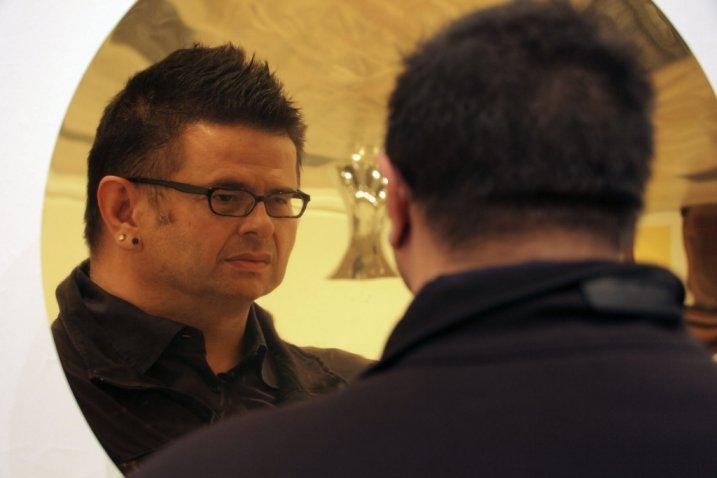The battleground: beauty. What’s at stake: our souls. At least on these two things philosophy don Roger Scruton (presenter of Why Beauty Matters) and art critic Waldemar Januszczak (presenter of Ugly Beauty) were agreed in the Modern Beauty season. For despite very different ideas of beauty, they both reached the same conclusion: it is there to nourish the soul.
Which is why it may seem odd that their programmes consider the same examples and yet reach very different conclusions. Jeff Koons to one is shallow and materialistic, to the other a source of self-knowledge. Scruton finds Damien Hirst a soulless, abominable trickster, Januszczak a poet of death in the tradition of the Baroque.
Scruton’s is a philosophical essay set to pictures and music. He starts with the importance of beauty in art up until the 20th century, and says its purpose was to transfigure the real in the light of the ideal: that is, to make us consider reality and how it relates to our higher ideals. The problem of the 20th century is that we have no ideals any more except for utility, and what is useful is invariably ugly and eventually useless. (Take Reading town centre, he says.) What beauty does is connect us directly to the spiritual, in the manner of religion, and thus nourishes the soul: this is Plato’s idea, and Scruton is a fan.
(Scruton argues that creativity is important in beauty, differentiating Michelangelo’s David from cemetery copies of the statue. This does make it slightly unfortunate that one of his jumping-off points is Oscar Wilde’s quotation, “All art is quite useless,” which is a paraphrase of John Ruskin’s “The most beautiful things in the world are useless.”)
Januszczak’s is a much more irreverent tour around Venice’s Biennale, with over-dramatic narration and on-screen antics, slopping dead fish everywhere and gesticulating like a bull at Pamplona. He – like Matthew Collings in the same season – outlines his vision of aspects of beauty, which include death, motherhood, texture, emptiness and kitsch. (This last is where Koons comes in.) Except, unlike Collings, he interviews many artists to provide us with the knowledge to understand their works and find them more beautiful. His roll-call is starry – Koons, Hirst, Anish Kapoor, Yoko Ono, Carl Andre (who refuses to appear on screen) – and the explanations provided may convert even the sceptical to viewing their work as beautiful.
The problem with Scruton’s argument is that it is old-fashioned, not just in the authorities it cites (Plato, the third Earl of Shaftesbury, Victorian poets), but when he says that beauty is meant to console the afflicted and reinforce the joyous, as if beauty is visual Prozac. This negates the message of the 20th century, which is that sometimes there is no consolation, no joy.
If two world wars and existentialism and the double helix showed us anything, it is that the world does not exist for a higher, affirmative purpose, and thus beauty should not try to make us feel good. The world is bad, so beauty can show us the bad.
This "bad" beauty nourishes our souls – or at least stimulates them to thought or emotion – in the same way as "good" beauty. Scruton does not realise, or refuses to accept, that the notion of beauty has been extended to reflect the world as we know it, not as we would like it.
That said, the underlying message of his principle is not wrong, nor is it rejected by Januszczak, who quite clearly believes that modern beauty is there to touch the soul: he just does not believe it must be a comforting touch.















Add comment